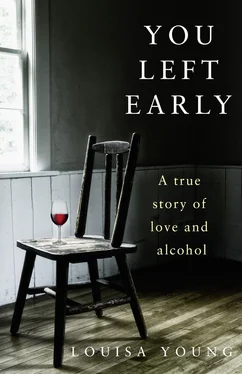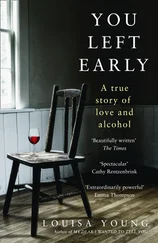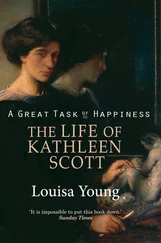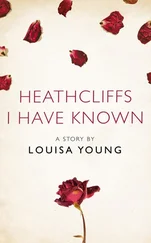In his youth he was beautiful like an off-duty Bowie – skinny, pale, romantic-looking, naughty, with something fugitive about him; he was always about to leave. In maturity, a craggy battered face, Northern, a big bent nose, a small chin, no eyebrows to speak of, cheekbones, a broad brow, small scar to the left, brown to grey hair tending to the fine and fluffy unless smoothed back, from which it benefitted, plenty of it, usually either too long or too short, always badly cut, because I did it, because he wouldn’t go to the barber. Widow’s peak. A bashed pale mouth, thin lips, curled in some sardonic look often enough. Big flat English ears. Beardwise, kind of bald on one side, a bit goatee-ish on the other; a wiry moustache which could have been elegant with the slightest bit of care. The odd pockmark. Glasses – whoever’s, it didn’t matter much. A bit Ted Hughes, a bit Samuel Beckett. All crag and stoop. Eyes? Yes, he had eyes. They were blue, and much clearer than they had a right to be. I may come back to them. Right now they are staring at me from various photographs, and, writing this, I see him looking at me, and my tears come up again and I need to go and rail against horrid fortune which made him as he was and not just a tiny bit different.
I see him, sometimes, in the criss-crossing currents of people. But he is not there.
Chapter Two Chapter Two Chapter Three Chapter Four Chapter Five Chapter Six Chapter Seven Chapter Eight Chapter Nine Part Two 2003–05 Chapter Ten Chapter Eleven Chapter Twelve Chapter Thirteen Chapter Fourteen Chapter Fifteen Part Three 2005–07 Chapter Sixteen Chapter Seventeen Chapter Eighteen Chapter Nineteen Part Four 2007–09 Chapter Twenty Chapter Twenty-One Chapter Twenty-Two Chapter Twenty-Three Chapter Twenty-Four Chapter Twenty-Five Chapter Twenty-Six Part Five 2010–12 Chapter Twenty-Seven Chapter Twenty-Eight Chapter Twenty-Nine Chapter Thirty Chapter Thirty-One Chapter Thirty-Two Chapter Thirty-Three Chapter Thirty-Four Chapter Thirty-Five Part Six 2012— Chapter Thirty-Six Chapter Thirty-Seven Chapter Thirty-Eight Chapter Thirty-Nine Chapter Forty Chapter Forty-One Chapter Forty-Two Chapter Forty-Three Chapter Forty-Four Chapter Forty-Five Appendices Footnotes Acknowledgements About the Author Also by Louisa Young About the Publisher
Primrose Hill, Wigan, Oxford, Battersea, 1982
I know for a fact which balcony it was. It has grown mythical in my mind: the balcony on to which he invited me, where he first kissed me, though I can’t actually remember the first kiss. But I remember the thrill of him wanting me to go out there with him. First floor, overlooking the park, leaves – plane trees? A very London balcony, as seen on the first floors of many handsome white stucco London houses of the mid nineteenth century.
It was our mutual friend Emma’s party, in a first-floor sitting room with long windows. We were twenty-two, twenty-three, at the stage where you go to parties in flocks, losing and gaining companions in the course of the night. I recall it being crowded, glamorous, noisy. I recall my little thrill at the sight of him.
I’d met him before. The first time was on a staircase in an Oxford college in 1976. We were going in and he was coming out. (‘We’ was me, my childhood friend Tallulah and her calm, amiable law-student boyfriend Simon, who we were visiting, and whose new friend Robert was.) I, a born, bred and dedicated Londoner, had never met a Northerner before, never heard gravelly basso profundo Wigan profanities coming out of a skinny whiplash chips-and-lemonade body. An old cricket blazer of some kind hung off him; clearly not his. He had that romantic demeanour of consumptive turn-of-the-century sleeplessness and intense energy – what my father called ‘pale and interesting’ (I was more pink and interested). He was gorgeous, incandescent. And leaving. He may return. Please return was my only thought.
He did return. He was at an upright piano between two windows, playing – Chopin? Debussy? People piped down. Girls were leaning over him. With my usual instinct to avoid what was attracting me, I went to the other end of the room and stood looking cross with my back to the wall. Oh, I knew how to let a chap know I liked the cut of his jib. And I listened. As someone said years later, ‘It was different when Robert played.’ It was. He was mesmerising. And he knew it, and he used it, and he was not comfortable with it.
People talked about him. He’d won his place to read music at Magdalen from Wigan Comprehensive (formerly Wigan Grammar) at the age of sixteen. (I, a day older than him, had only just passed my O-levels.) By seventeen he was a demy, a half-Fellow – this is a form of scholarship for ‘poor scholars of good morals and dispositions fully equipped for study’. Previous incumbents included Oscar Wilde and Lawrence of Arabia. By his third year he was teaching the first years, and he graduated at nineteen with a double first, twice as good as the normal and tragically insubstantial single first, which was clearly not good enough for him. He’d got Ds in his two other A-levels, French and German, and had massive streaks of ignorance about everyday subjects. Two highly knowledgeable musicians recently – and separately mistook a tape of the young Robert playing for Arthur Rubinstein.
Child prodigy? Massive over-achiever? Cultural cliché? Chippy Northerner? Workaholic artist? All of the above?
‘There’s no fuckin’ frites on my épaule ,’ he said.
There was a song he used to sing:
‘We’re dirty and we’re smelly,
We come from Scholes and Whelley,
We can’t afford a telly,
We’re Wigan Rugby League, diddley de dum OI OI.’
He would do it in broad Wigan – ‘We coom fro Scerls’n’Welli’ – or, for variety, in a posh, southern, actor-y manner: ‘We come from Scales, end Welleh, we carn’t, aff ord, a te lleh …’ Alongside his exceptional ability on the piano, it made an amusingly ambiguous impression. No Brit is left untouched by the terrible four – class, geography, money, education – and there was an assumption among Oxbridge undergraduates at that time that Northern = working class. The niceties of ‘Rough’ v ‘Respectable’ working class, or respectable working class v lower middle class, were pretty irrelevant in that world. It all counted as Not Posh. Sometimes when posh people realised Robert wasn’t entirely working class they would say he pretended to be, and resent him for it, when in fact it had been their own presumption in the first place. Once, for a week, he made a conscious effort to get rid of his accent. Then he realised people noticed him because of it, and that as long as he could put up with the mockery it was actually an advantage. People whose class is unexpected can get away with things. They can be seen by the class they are arriving in as somehow superior, gifted with knowledge from the other side. It can work well for intelligent, socially mobile working-class boys: their strangeness confers a powerful status – which in turn contributes to the anxiety of the uprooted, those who by being socially mobile become psychologically divided.
In his uncomfortable, nervy move south and up, Robert did sacrifice pronouncing book to rhyme with fluke. In Wigan once, a cabbie taking him home from the station wouldn’t believe he was from there, saying ‘Ner, yer not’ as Robert, upset, insisted. Meanwhile in Oxford and London he remained the most Northern thing anyone had ever seen. He never rescinded his Northern passport, preached the gospel of rugby league daily (and interminably), and replaced bath-to-rhyme-with-hath not with bath-to-rhyme-with-hearth but with, every time he used the word, a piss-takingly long, self-aware and scornful barrrrth . He couldn’t use the word ‘dinner’ without either a sarcastic accent or a short monologue on why he wasn’t saying ‘tea’. People were often accused of mitherin’ and maulin’ him. Checking there was enough cash for an outing, he’d say ‘As geet caio?’, a usage so arcane I doubt there’s a Wiganer alive now who’d use it other than in nostalgia and irony. But then those two never quite sorted out their differences in Robert’s first-in-the-family-to-go-to-university heart.
Читать дальше












